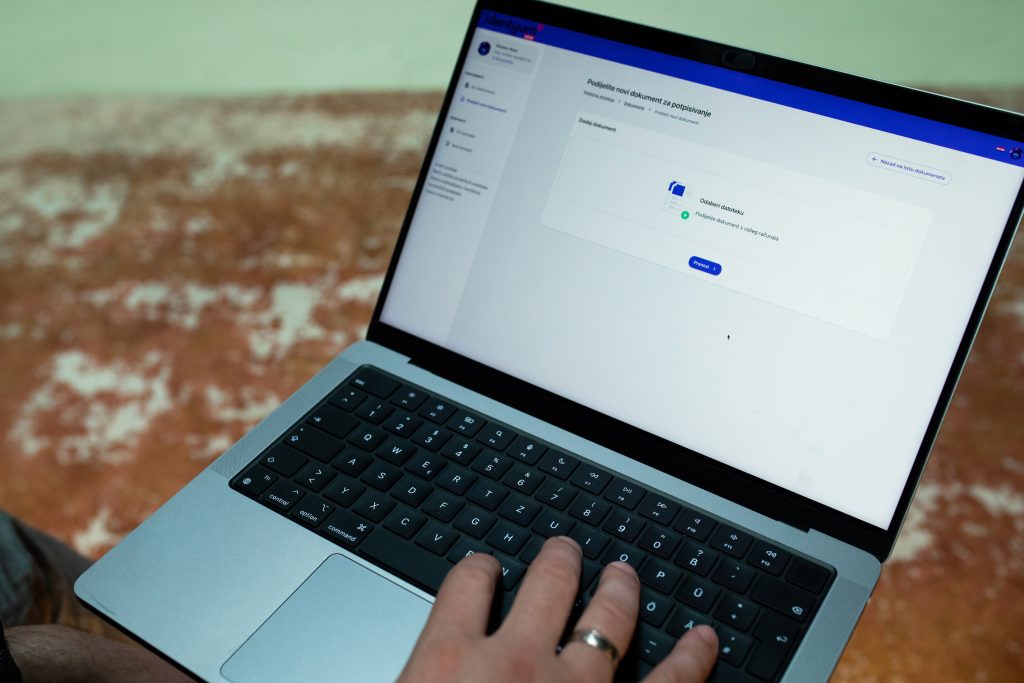
Do you like the idea of quick and easy implementation of electronic document signing? You’re probably wondering if that signature is good and valid in court at all?
All electronic signatures are fully legally valid if they comply with the eIDAS regulation and national regulations. Such signatures have probative value in any court within the European Union. The eIDAS Regulation states that an electronic signature must not be denied legal effect and admissibility as evidence in court just because it is digital. The eIDAS Regulation defines an electronic signature as data in electronic form that is attached or logically linked to other data in electronic form and used by the signatory for signing.
What types of electronic signatures exist and how to verify them?
In practice, there are three types of electronic signatures, namely the standard SES signature, the advanced AES signature and the qualified QES signature.

A standard SES signature is very simple, but usually does not contain the possibility of the identity verification of the person signing with it, so it is less confidential than other types of signatures. An example of such a signature is one that is inserted into a PDF as a thumbnail or plain text. Although legally valid, its actual probative value in court is very low, precisely because it is most often unrelated to the identity of the signatory. An advanced AES signature is one that is uniquely associated with the identity of the signatory and that prevents subsequent modification of a document already signed. A qualified QES signature has the greatest probative value because it is equivalent in its legal effect to a handwritten signature on paper. The quality of identification when issuing a certificate for the signature and the quality of identification of the signatory during the signing itself give the greatest weight to the probative value of any type of signature.
Before using any type of electronic signature, it is important to know that an electronic signature is actually an *invisible* addition to a PDF. To check this invisible addition, you need to click on the part of the PDF with the text “Digitally signed by” in Adobe Reader. This text (visual representation of the signature) does not in itself constitute an electronic signature, but serves as a link that you can click to more easily verify the electronic signature itself. It is good to know that if the signature is “Unknown”, it does not necessarily mean that the signature is not valid or advanced, but only that its automated verification is not possible.
What happens to an electronic signature if you print a PDF document?
Just as a handwritten signature on paper loses its legal probative value if it is scanned, so an electronically signed PDF document, once printed, becomes just a plain paper without a signature. The whole point of an electronically signed PDF document is that this signature can be verified in the digital world. An electronic signature is not a mark, image or text that appears on a document but its invisible addition. Once an electronically signed document is printed, it can no longer be verified because there is no proof of the signatory’s identity. That is why electronically signed documents are intended for digital storage and not for storage in binders.
How can you start electronically signing documents?
Instead of the long lasting process of waiting in lines to take the device (such as a smart card or USB) you need to sign and install it on your computer, you can download the signature certificate in minutes via the Identyum NOW platform. Unlike many other electronic signature service providers, Identyum performs a detailed identity verification of the user when issuing a signature certificate, and you can sign immediately using your mobile device or computer using the Identyum SIGN service.

Before downloading a signature certificate, you must create your Identyum ID Wallet in which the certificate will be automatically stored. The main advantage of Identyum ID Wallet is that the certificate, which allows electronic signing of any document, can be obtained without the need to visit the branch offices. You can choose to sign with standard SES or advanced AES electronic signatures, which have high probative value in any court of the European Union, because they are based on the credible identity of the signatory. Signature verification can be carried out with all the leading tools for viewing PDFs, such as Adobe Reader. In addition, you can send documents for signature through the Identyum NOW portal without the need for other person to go somewhere or have any additional software or device.
Join the community of electronic document signing enthusiasts. We are here 🙂


The project is funded by the Interreg V-A Hungary-Croatia Cooperation Programme 2014-2020, Beneficiary Light Grant Scheme (B Light). The content of this article is the sole responsibility of Identity Consortium d.o.o. and can under no circumstances be regarded as reflecting the position of the European Union and/or the Managing Authority.
